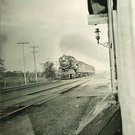Slow down for the good of the environment and our wallets
To the Editor:
Gasoline is expensive compared to what we were paying in the past. What can we do about it?
We don’t want to be dependent on any foreign oil, especially Russian oil!
In 1973, we, the United States of America, had enacted an Arab oil embargo, and consequently for many reasons, declared a national “energy crisis.” In the fall of 1973, President Richard Nixon issued an executive order, mandating a 55-mile-per-hour national maximum speed.
This was intended to force U.S. citizens to drive at speeds deemed more fuel efficient thereby suppressing the country’s appetite for foreign oil. The 55-mile-per-hour speed-limit law was legislated as a fuel-conservation measure.
History records that Connecticut was the first state in the U.S. to impose a numerical speed limit for motor vehicles in 1901, instituting a 12-mile-per-hour limit in cities and 15 miles per hour on rural roads.
The 1973 national speed limit mandate of 55 miles per hour was repealed in 1995 by a Republican-dominated Congress and I must admit to you that I do like driving faster when appropriate!
Take note of the fact though: According to the Congressional Research Service at that time, the 55-mile-per-hour speed limit reduced gasoline consumption in the United States by about 167,000 barrels a day.
Considering that there are about 75 million more vehicles registered in the U.S. now than in 1995, it would be appropriate to conclude we would conserve even more gasoline and fuel nationally if we were to resume a 55-mile-per-hour maximum speed limit today.
So, when we’re all whining about the cost of gasoline, what are you willing to do about it that is within your power to change?
Can’t get a more efficient vehicle? Then try slowing down! Ease up on the gas pedal!
We did it before, as a unified nation, for the good of the environment and our wallets!
Timothy Albright
Meadowdale
